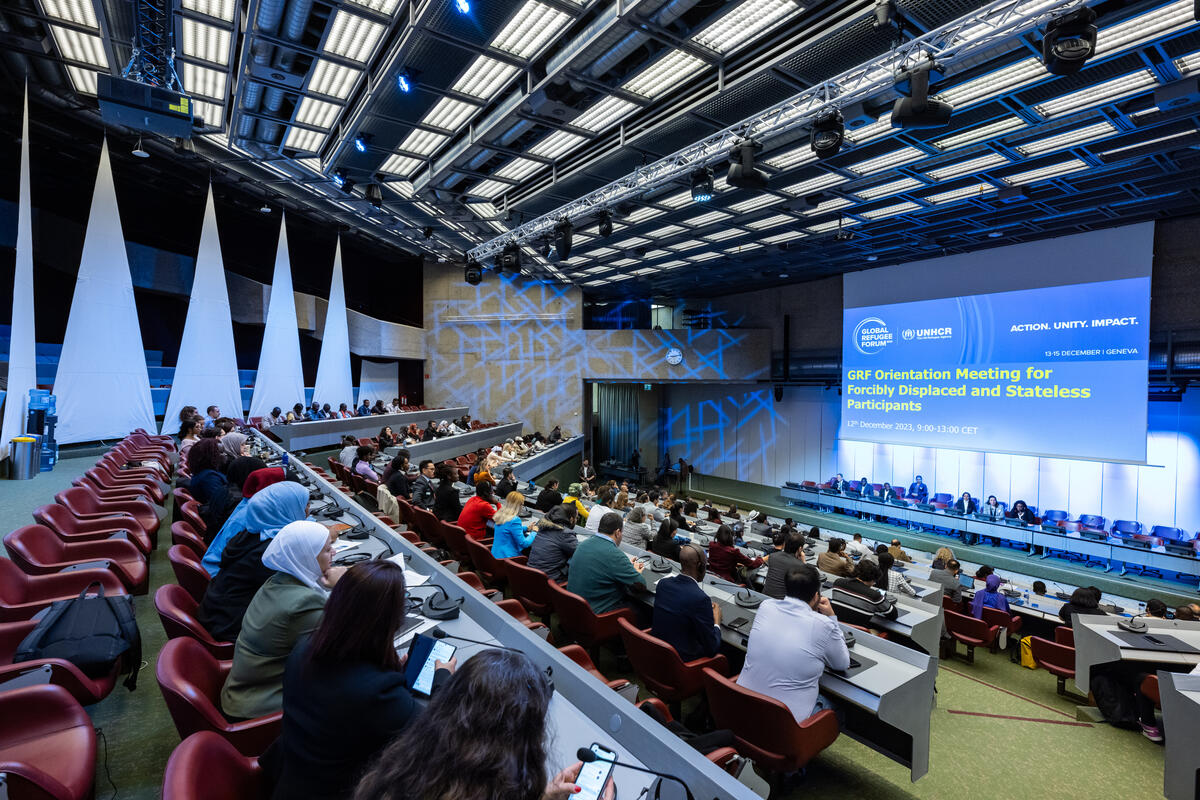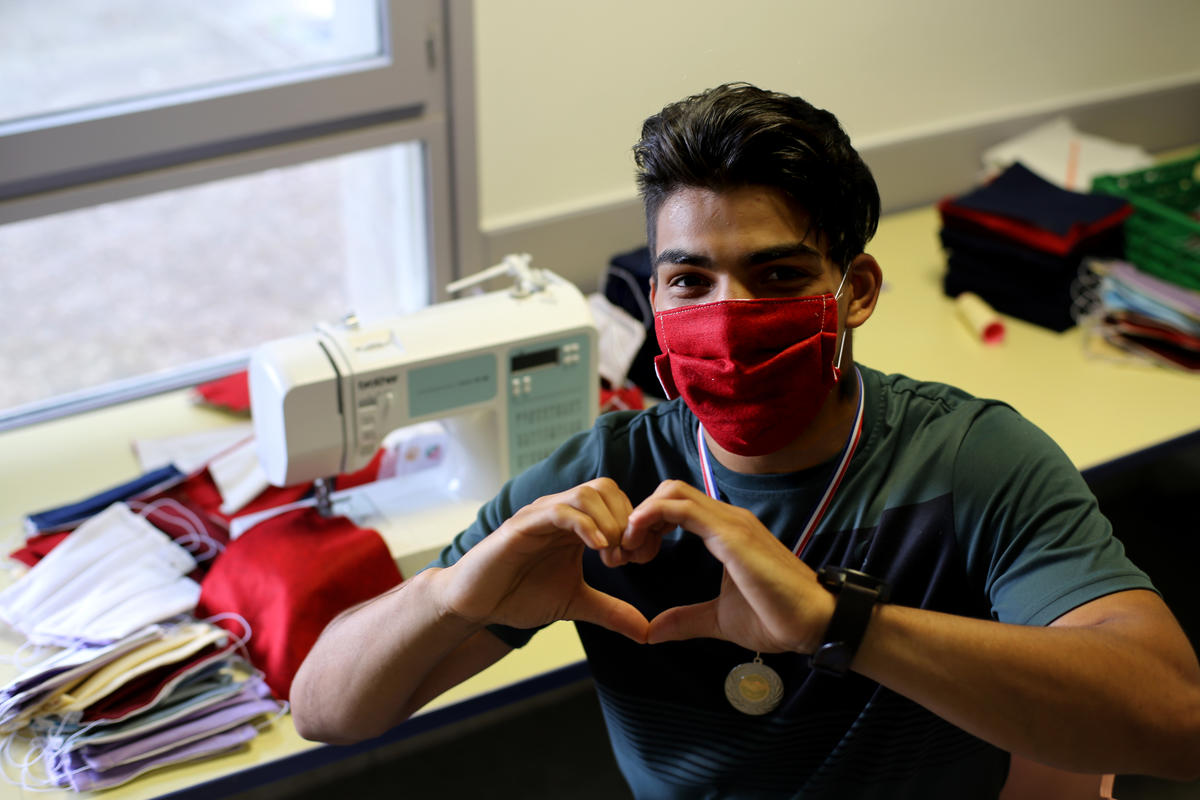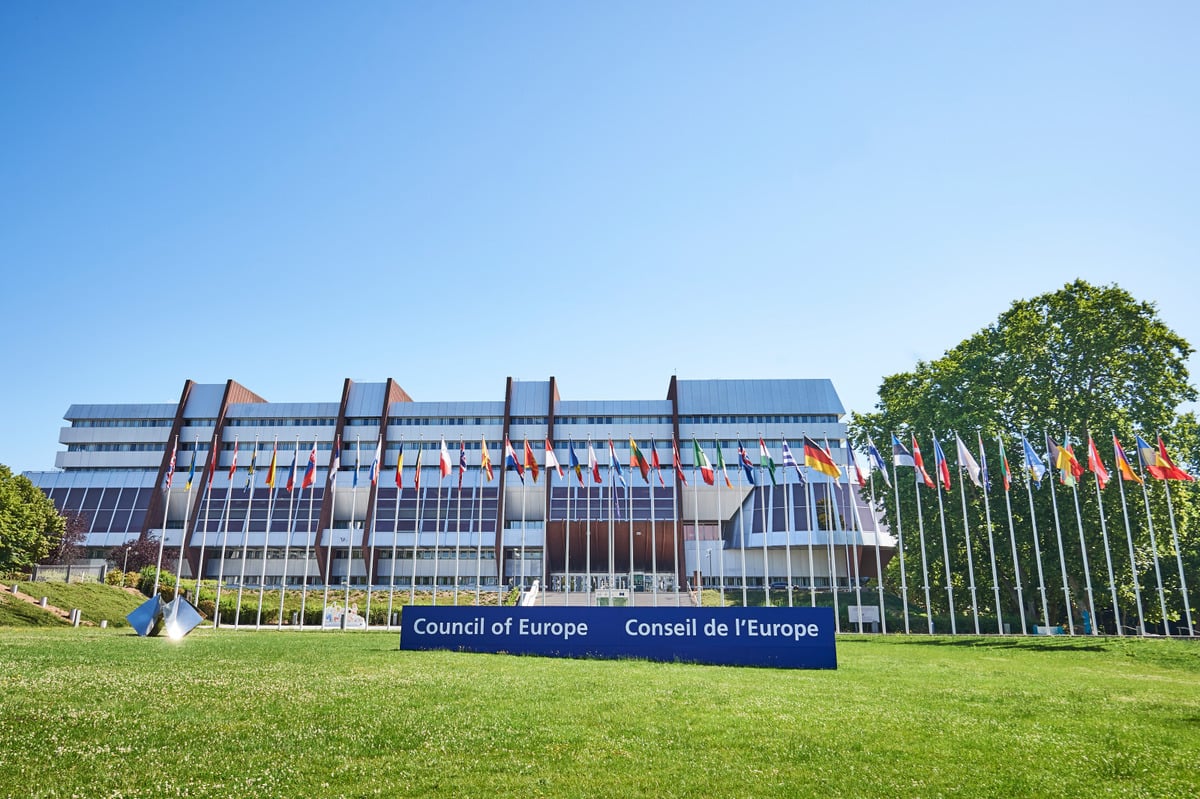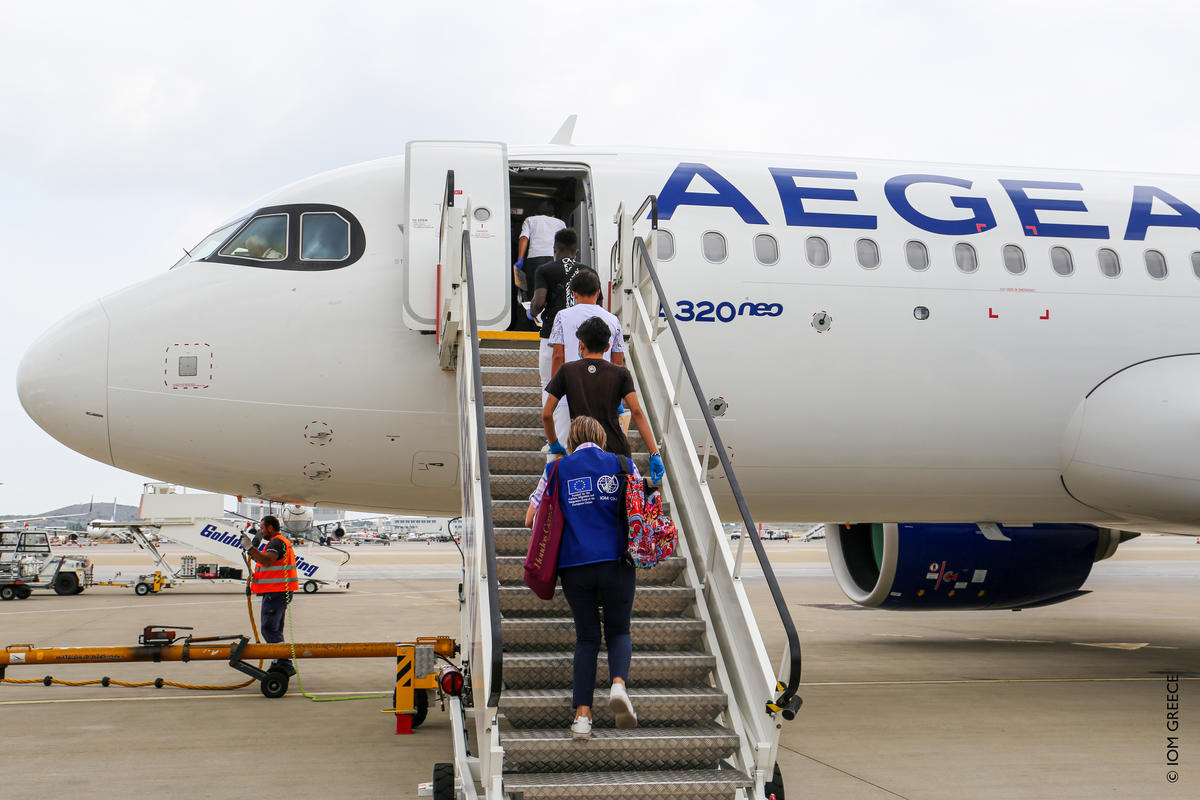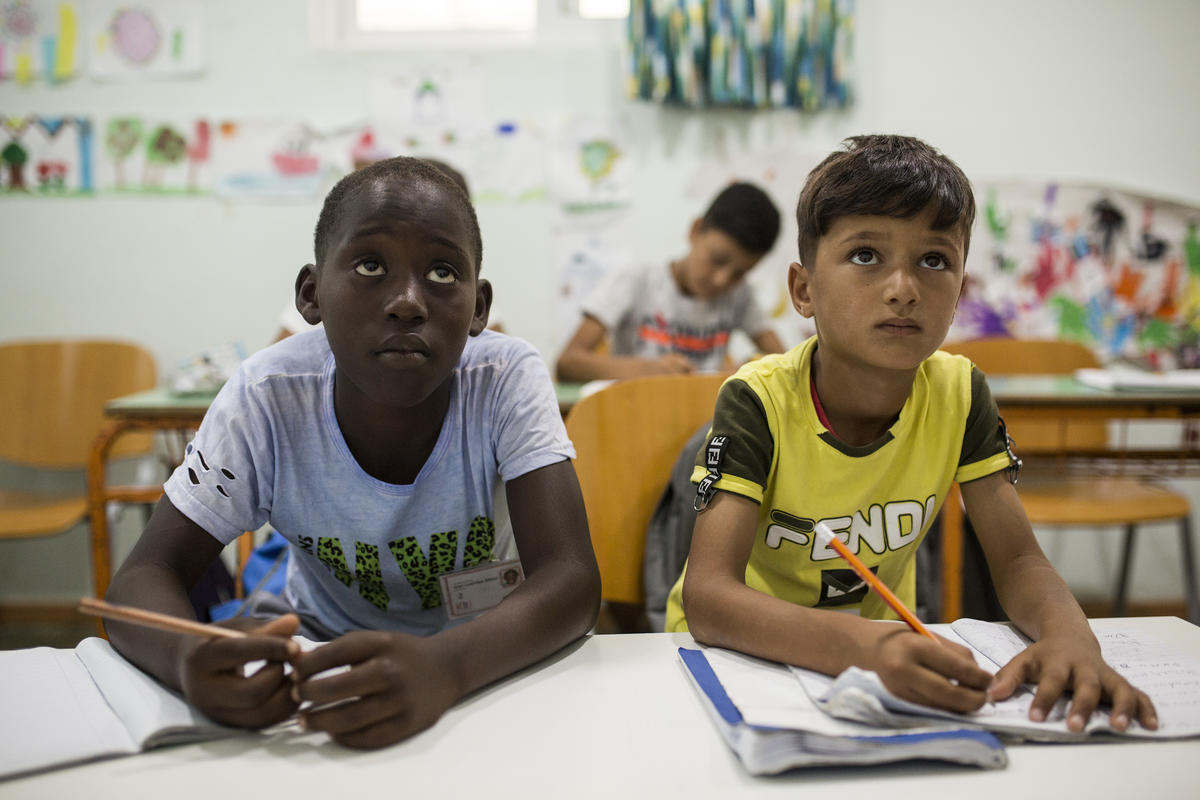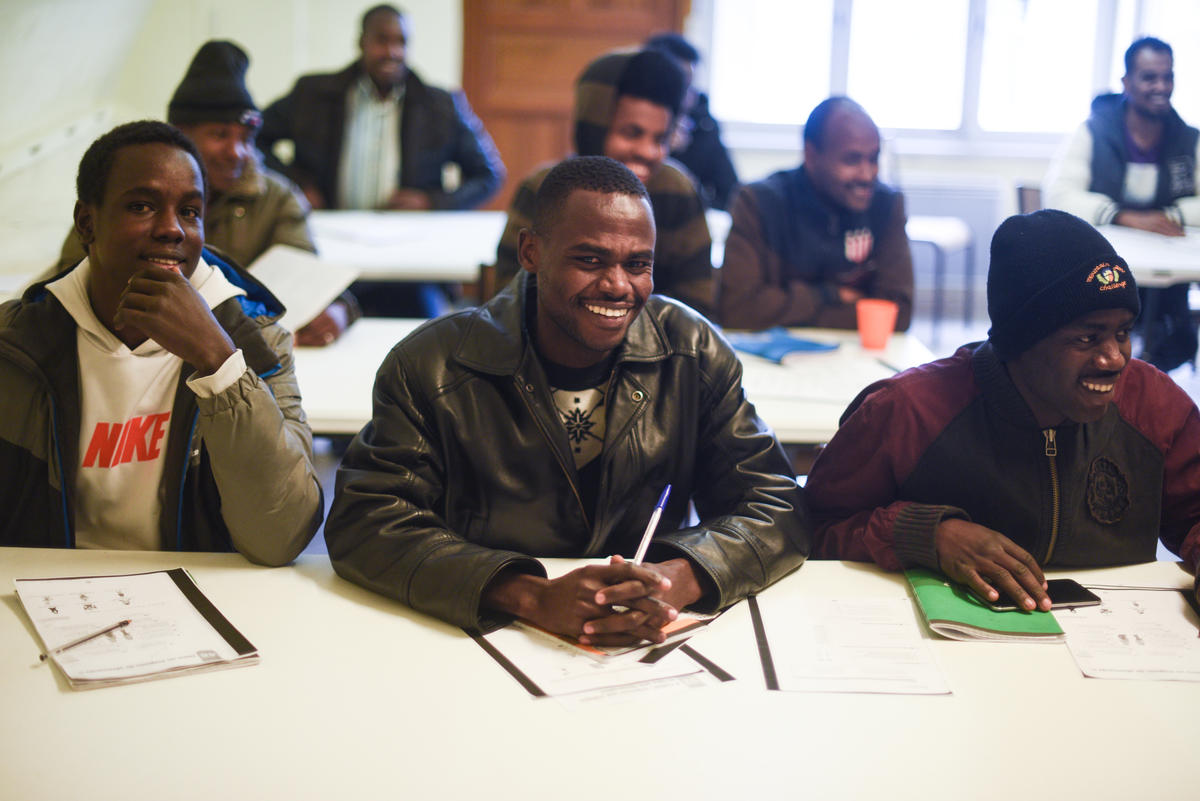A refuge for refugee journalists in the heart of France
A refuge for refugee journalists in the heart of France

PARIS, France, May 6 (UNHCR) - At the unique House of Journalists in the Parisian suburb of Bobigny refugee reporters are regarded as heroes and welcomed with open arms, a far cry from their treatment back home.
Set up in 2002 by journalists Danièle Ohayon and Philippe Spinau and supported by their colleagues in the French media, the award-winning House of Journalists is the only hostelry of its kind in the world. It has over the years hosted 140 journalists from more than 40 countries who were forced to flee persecution in their homeland. It can house 15 refugees at a time, each of whom stays for six months.
"Journalists persecuted in their own countries are heroes for us, we admire them immensely for what they have done, for the risks they have dared to take," said Ohayon, adding that those forced to flee their homes needed the support of their foreign colleagues.
The main aim of the House is to help refugee journalists adapt to their new life and integrate into a culture that is largely alien to most of them. But it has also become a kind of job centre, where French journalists help their colleagues to resume work and rediscover their dignity.
It receives substantial financial and practical assistance from the French media and each bedroom is sponsored by some of the biggest names in the business, including Le Monde, Le Figaro, Radio France, Canal+, La Nouvelle République and Paris Match. The European Fund for Refugees and the City of Paris also provide support.
UNHCR has no formal connection with the House of Journalists, but the refugee agency welcomes the important role that it plays. "Danièle and Philippe had to move mountains to get this project off the ground," said Marie-Ange Lescure, spokeswoman for UNHCR in France and a former colleague of Ohayon at Radio France. "They did everything; they came up with the idea, put it into action, oversaw the work and solicited support."
She also paid tribute to other journalists who support the facility, located in a three-storey former factory provided rent-free by municipal authorities. Aside from individual rooms allowing the inhabitants valuable privacy, there are also impressive communal facilities, including a computer room, library, kitchen, dining room, TV room and laundry.
Most new arrivals don't speak French, which is why a full-time language teacher - and former refugee - has been hired to provide lessons. Learning French helps smooth the integration of new arrivals and boosts their chances of finding work.
"We must restore their visibility, their desire to resume their profession," said Ohayon. To keep the refugees occupied while waiting to hear about their asylum applications, the House of Journalists publishes a weekly newspaper, "L'oeil de l'exilé," (Eye of the Exiled), which is put together by the residents.
In partnership with France Terre d'Asile, an aid agency that helps asylum seekers and refugees, the refugee journalists have started an online radio station, Quasimodo, which carries stories aimed at boosting awareness about the rights of asylum in France.
Some refugee journalists have also taken part in popular mainstream radio programmes, including live coverage of football matches on RTL, France's top station in terms of audience numbers. And last Saturday, World Press Freedom Day, a group of journalists from the House spent the whole day presenting programmes on France Info, the top news radio station in the country.
Haitian refugee Tcheïta Vital stayed in the House of Journalists for six months after fleeing persecution in her country and arriving in France in 2004. "I didn't really have a life after arriving in France until I went to stay in the House," she recalled, while adding that after meeting Ohayon and going to live in the House, "I knew that I was home; I felt liberated. The House of Journalists was my house."
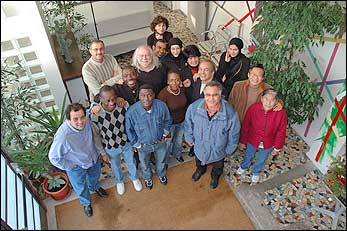
She has since gone on to forge her own career, but still helps out part-time at Qasimodo Radio. Vital says that's because she wants to stay in touch with those who helped her and to pass on her knowledge to those who follow her at the House of Journalists.
The success of the House of Journalists has inspired journalists and media organizations in other countries. Similar projects have been launched in Germany and the United Kingdom, while a Spanish version will soon open in the southern port city of Cadiz.
Its pioneering work has also been recognized by others. In January, Ohayon and Spinau, accompanied by Vital, accepted Italy's prestigious Nonino Prize.
By Talia Thisse in Paris, France

